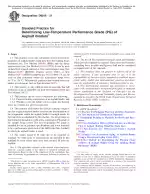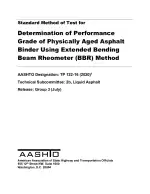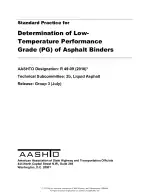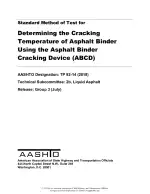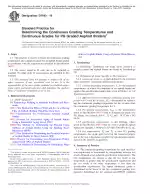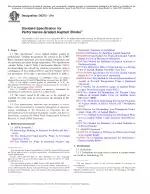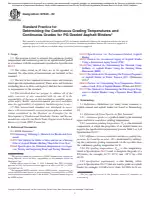ASTM D6816-21 PDF Download
Standard ENStandard Practice for Determining Low-Temperature Performance Grade (PG) of Asphalt Binders
Also Known As:
The ASTM D6816-21 standard provides guidelines for calculating the low-temperature properties of asphalt binders. The practice involves using data from the bending beam rheometer (BBR) and the direct tension tester (DTT), which can be collected from unaged material or material that has undergone aging using specific methods. The practice covers a temperature range from +6°C to -36°C.
The standard specifies that the calculated low-temperature properties can be used in binder specifications, such as ASTM Specification D6373. It aims to determine the critical cracking temperature of an asphalt binder and assess whether the failure stress exceeds the thermal stress at a given temperature. The critical cracking temperature is the temperature at which the asphalt binder's strength equals its thermal stress.
It is important to note that the low-temperature performance grade (PG) determined through this practice is intended for use in purchase specifications and is not a prediction of the performance of the asphalt binder in hot mix asphalt (HMA) applications. The standard acknowledges the complexity of the calculations involved and suggests that they should be performed on a computer with specialized software.
| Descriptors | critical cracking temperature, failure stress, thermal cracking, direct tension tester, asphalt binders,Asphalt Mixtures,Bending Beam Rheometers,Cracks and Cracking,Fracture,Stress and Strain,Temperature,Tensile Testing Machines |
| ICS Codes | 93.080.20 - Road construction materials |
| Language(s) | English |
| File Size | 184.3 KB |

